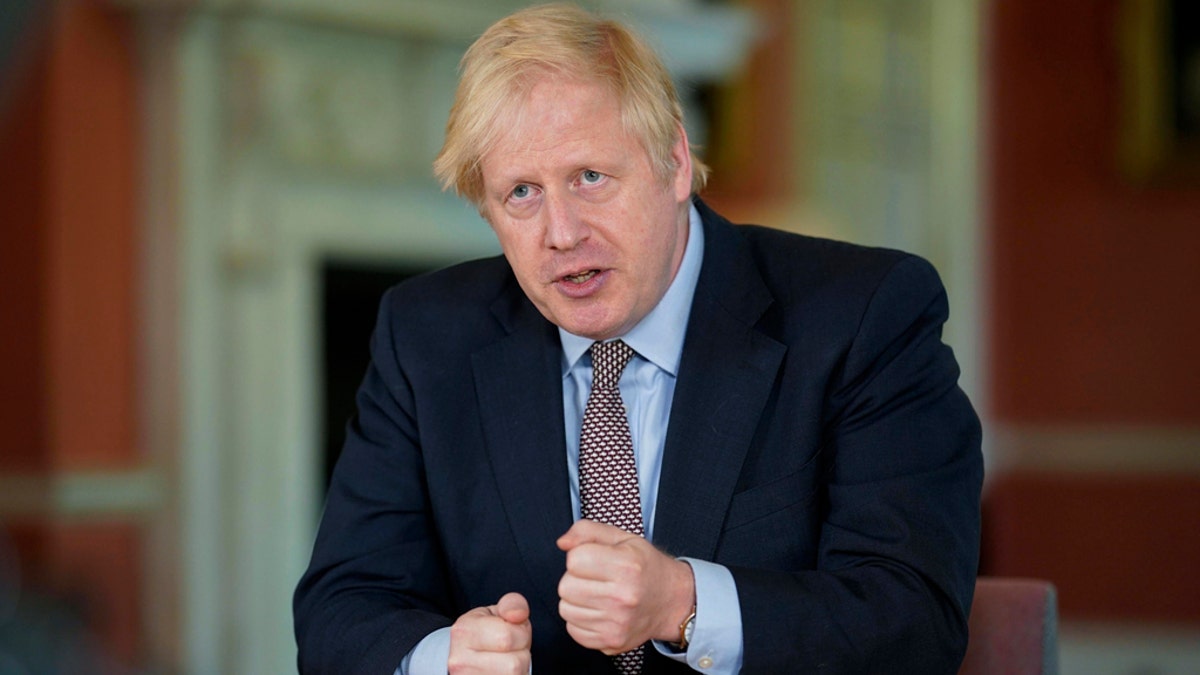Pompeo: The Chinese Communist Party has broken its promise on Hong Kong
Secretary of State Mike Pompeo discusses the relations with China after the U.S. ends preferential relationship with Hong Kong on ‘Sunday Morning Futures.’
United Kingdom’s prime minister has vowed to admit nearly 3 million Hong Kong residents in response to China’s efforts to impose a new national security law on the territory.
Making the pledge in an editorial published by The Times Wednesday, Boris Johnson said about 350,000 Hong Kong residents who hold British national overseas passports, as well as some 2.5 million people who meet the requirements to apply for them, would be issued 12-month renewable visas to live in the U.K.
That visa could clear the passage to British citizenship, but Johnson did not elaborate further.
“Many people in Hong Kong fear that their way of life – which China pledged to uphold – is under threat,” Johnson said. “If China proceeds to justify their fears, then Britain could not in good conscience shrug our shoulders and walk away; instead we will honor our obligations and provide an alternative.”
CHINA'S NATIONAL SECURITY BILL FOR HONG KONG THREATENS LIBERTIES, AUTONOMY: US, WESTERN POWERS

In this photo issued by 10 Downing Street on May 10, 2020, Britain's Prime Minister Boris Johnson delivers an address on lifting the country's lockdown amid the coronavirus pandemic. (Andrew Parsons/10 Downing Street via AP)
“There is something wonderful about the fact that a small island in the Pearl River Delta rose to become a great trading city and commercial powerhouse of East Asia. Wonderful, but not accidental or fortuitous,” the prime minister wrote.
“Hong Kong succeeds because its people are free,” Johnson continued. “They can pursue their dreams and scale as many heights as their talents allow. They can debate and share new ideas, expressing themselves as they wish. And they live under the rule of law, administered by independent courts.”
Johnson asserted that China's decision to impose the new national security law on Hong Kong, rather than allow Hong Kong to govern through its own institutions, lies in direct conflict with the United Nations-registered Sino-British Joint Declaration. The 1997 agreement handed over Hong Kong, previously a British colony, to Beijing as long as Hong Kong’s people were allowed to retain some liberties not afforded to Chinese citizens.
“The U.K. has had no sovereignty, governance or supervision over Hong Kong since its return (to Chinese rule),” Zhao Lijian, a spokesman for China's foreign ministry, said in a press conference Tuesday, according to the Associated Press. “Therefore, the British side has no right to cite the Sino-British Joint Declaration to make irresponsible remarks on Hong Kong affairs and interfere in China’s internal affairs."
Hong Kong leader Carrie Lam accused foreign critics of displaying “blatant double standards,” claiming China has the same right as the U.S. and Britain to enact legislation protecting its national security. Lam argued China was compelled to take the step at the national level because of opposition in Hong Kong’s own legislature and among government critics made it impossible to do so locally.
“It is within the legitimate jurisdiction of any country to enact laws to protect and safeguard national security. The USA is no exception. The U.K. is no exception,” she said. “So why should they object, resist or even condemn and take their sanctions against Hong Kong and the People’s Republic of China for taking similar actions?”
Large scale protests in Hong Kong resumed for the first time in months about two weeks ago, when the new law criminalizing anti-government movements was endorsed by the Chinese legislature. The national security law would alter Hong Kong’s mini-constitution, or Basic Law, to require the territory to enforce measures decided by China’s National People’s Congress (NPC) standing committee, a small body controlled by the ruling party that handles most lawmaking.
Details of the law are to be decided in the coming weeks and are expected to go into effect in September, around the same time as Hong Kong's council election.
CLICK HERE TO GET THE FOX NEWS APP
Last week, President Trump announced his administration would revoke Hong Kong’s preferential trade status, as it no longer enjoyed a high degree of autonomy from China, and would move to impose economic sanctions on some officials for “smothering – absolutely smothering – Hong Kong’s freedom.”
The Associated Press contributed to this report.
